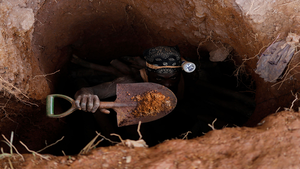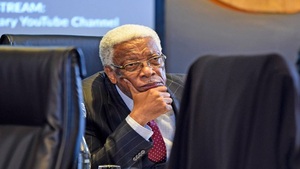This is one of the key findings of the latest Global Terrorism Index, compiled by the Institute for Economics and Peace.
The report reveals that 51% of all terrorism deaths recorded globally last year occurred in the Sahel, a marked increase from 48% in 2023. The region was also the scene of 19% of all terrorist incidents worldwide.
Burkina Faso remains the hardest-hit country in the region. It alone was responsible for 21% of global terrorism fatalities last year, with 1 532 deaths attributed to militant violence. Although that figure represents a slight decrease compared to previous years, experts warn against interpreting the trend as a sign of improvement.
“Some countries have seen sharp drops in one year, only for the numbers to surge again in the following years,” said Steve Killelea, Founder and Chairperson of the Institute. He pointed out that nine of the 20 deadliest terrorist attacks globally in 2024 took place in Burkina Faso, three of them ranking among the six worst.
While much of sub-Saharan Africa remains relatively unaffected, with no terrorism-related deaths recorded in half of the 44 countries surveyed over the past five years, the Sahel has become a flashpoint. Since 2019, terrorism fatalities in the region have increased tenfold, driven largely by the activities of jihadist groups.
Groups such as Jama’at Nasr al-Islam wal Muslimin (JNIM) and the Islamic State’s West Africa Province (ISWAP) have played a prominent role. JNIM, in particular, was linked to a 42% rise in fatalities in 2024, even as ISWAP’s activity declined. Boko Haram also remains active in parts of northern Nigeria, which recorded more than 3 500 terrorism-related deaths last year.
The factors fuelling the violence are complex and deeply rooted. The region struggles with poor governance, widespread poverty, ethnic tensions, state violence, and a lack of central control in many rural areas. These challenges are often exploited by armed groups seeking to entrench themselves.
According to the Index, the conflict has increasingly become entangled with control over resources, especially gold. Armed groups often capitalise on local grievances to gain influence, then extract revenue by taxing mining and transport activities rather than directly engaging in resource extraction themselves.
Burkina Faso’s political realignment has also added new dimensions to the crisis. With the country withdrawing from the Economic Community of West African States and growing closer to Russia and China, regional co-operation on security has weakened. Russian-linked forces, operating under the banner of Africa Corps, are now reportedly active in Burkina Faso, supplying weapons, artillery and other support.
To compensate for their isolation, Burkina Faso, Mali and Niger have formed the Alliance of Sahel States. However, Killelea believes this coalition may struggle to contain the threat on its own, given the weak institutional capacity and limited control over vast rural areas.
“External support remains crucial,” Killelea said. “The African Union could assist through peacekeeping, military backing and diplomatic efforts, but a broader regional commitment is needed.”
Despite the gravity of the crisis, neighbouring countries have shown hesitation in engaging more directly, often out of concern that the violence could spread further into West Africa. Togo, for instance, recorded 51 terrorism-related deaths in 2024.
Looking ahead, the Index warns of new threats emerging. Drone technology, widely used in conflicts like the war in Ukraine, may soon find its way into African conflict zones. While not yet widespread on the continent, cheap and easily weaponised drones could significantly escalate future attacks by non-state armed groups.
--ChannelAfrica--













